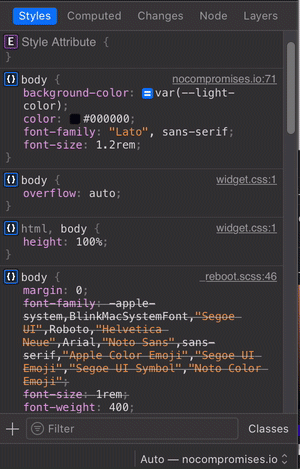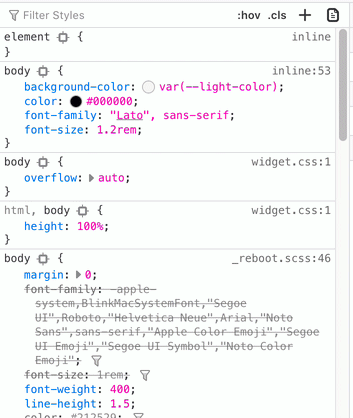Online discussions, you know, they sometimes take rather unexpected turns, don't they? It's almost as if the internet has a mind of its own, throwing up search terms that make you pause and wonder. One such phrase, a bit startling perhaps, that has certainly caught people's attention, is "mia khalifa dog poop." It's a curious combination of words, really, that has popped up in various digital corners, leaving many to ponder its origins and what it truly signifies in the vast, sprawling landscape of online chatter.
This particular phrase, quite frankly, represents a fascinating, if somewhat odd, aspect of how information, or even misinformation, travels across the web. People are often drawn to things that seem out of the ordinary, that spark a sense of curiosity, or that perhaps even elicit a chuckle due to their sheer peculiarity. When a celebrity's name gets linked with something so mundane, yet so unexpected, it tends to generate a certain level of interest, and that, in a way, is what we're seeing here.
So, we're going to take a closer look at this rather unusual search query. We'll explore the public figure whose name is involved, think about how these kinds of phrases come to be, and consider the wider implications of such unique online trends. It's an opportunity, actually, to think about how names can mean different things to different people, and how the internet sometimes brings together ideas that, you know, don't seem to have much to do with each other at first glance.
- Club De Hombres Para Mujeres
- Chain Whip Cotton Picking
- Coach Birkin Dupe
- Neighbors Dog Is Pregnant
- Deano The Barber Arrested
Table of Contents
- Mia Khalifa - A Public Persona
- What's the Buzz About "Mia Khalifa Dog Poop"?
- How Does "Mia Khalifa Dog Poop" Appear in Online Spaces?
- Examining the "Mia Khalifa Dog Poop" Phenomenon
- The Name "Mia" - More Than One Story
- Is "Mia Khalifa Dog Poop" Related to Public Collections?
- The Minneapolis Institute of Art's "Mia" and its Public Trust
- Where Do We Go from "Mia Khalifa Dog Poop"?
Mia Khalifa - A Public Persona
Mia Khalifa, whose birth name is Sarah Joe Chamoun, has certainly become a very recognizable figure in the public eye. She was born in Beirut, Lebanon, and later moved to the United States. Her path to becoming a well-known personality involved a brief, yet highly publicized, period in the adult film industry. After leaving that line of work, she transitioned into other areas, including online commentary, social media influencing, and sports broadcasting, actually. She's built a significant following across various platforms, engaging with her audience on a wide range of topics, so.
Her presence online is, you know, quite substantial, with millions of followers across different social media sites. This level of visibility means that her name, her image, and anything associated with her can quickly become a subject of discussion, or even a trending topic. People are often curious about public figures, and sometimes that curiosity leads to searches for very unusual or unexpected phrases, which is sort of what we're looking at here, too.
Here's a little bit about her personal details, just for context:
- Chappell Roan Forehead
- Mature Wives Shared
- Really Hairy Lesbians
- Arina Glazunova Security Camera Footage
- Is The Glow Recipe Toner Good For 12 Year Olds
| Full Name | Sarah Joe Chamoun |
| Known As | Mia Khalifa |
| Birthplace | Beirut, Lebanon |
| Nationality | Lebanese-American |
| Occupation | Internet personality, social media influencer, former adult film actress |
What's the Buzz About "Mia Khalifa Dog Poop"?
The phrase "mia khalifa dog poop" is, to be honest, a rather perplexing one. When something like this surfaces online, it naturally prompts a lot of questions. Is it some kind of inside joke? Is it a reference to a specific event that perhaps went unnoticed by most? Or is it simply a random string of words that, you know, somehow gained traction in the vast, often unpredictable, world of internet searches? It's really quite interesting how these things develop, isn't it?
Often, these types of unusual search terms can stem from a variety of sources. Sometimes, they might originate from a single, obscure social media post that, for whatever reason, gets shared widely. Other times, they could be the result of a deliberate attempt to create a viral sensation, or even just a misunderstanding of a piece of content. The internet, you see, has a way of amplifying the unusual, and something as seemingly nonsensical as "mia khalifa dog poop" can, in some respects, become a talking point simply because of its oddity.
It's important to remember that not every search query or trending phrase has a deep, underlying meaning. Sometimes, things just are what they are: a combination of words that, for a brief moment, capture the collective attention of online users. The sheer volume of information and the speed at which it moves mean that even the most peculiar phrases can find their way into public consciousness, just a little bit, for a short while, anyway.
How Does "Mia Khalifa Dog Poop" Appear in Online Spaces?
When a phrase like "mia khalifa dog poop" starts to appear, it typically shows up in a few common online spots. You might see it in search engine suggestions, which is that little drop-down list that tries to guess what you're looking for as you type, you know? This happens when enough people have typed that exact combination of words, making it a recognized, albeit strange, query. It's a pretty good indicator of what people are actually searching for, really.
Beyond search engines, these kinds of phrases can pop up on social media platforms. Think about Twitter trends, or perhaps discussions on Reddit forums. Users might share screenshots of the odd search term, or create memes around it, further spreading its reach. It's almost like a digital game of telephone, where a peculiar phrase gets passed around, sometimes with added layers of interpretation or humor, too. This rapid sharing is what often gives these terms their brief moment in the spotlight, basically.
Then there are discussion boards and online communities where people talk about anything and everything. Someone might post about encountering "mia khalifa dog poop" in their search history, prompting others to investigate or comment. This collective curiosity, or sometimes just plain amusement, keeps the phrase circulating. It’s a pretty good example of how internet culture works, where even the most unusual things can become a topic of conversation, at the end of the day.
Examining the "Mia Khalifa Dog Poop" Phenomenon
Looking at the "mia khalifa dog poop" phenomenon, it really highlights a few interesting aspects of our digital lives. For one, it shows how easily a public figure's name can become attached to something completely unrelated, or even absurd. This can happen without any direct action from the person themselves, which is something to consider, isn't it? It speaks to the often unpredictable nature of online associations, actually.
It also brings up questions about information accuracy and how we, as users, interpret what we see online. When you come across something so unusual, your first thought might be to search for more details. But often, with phrases like "mia khalifa dog poop," there might not be a clear, logical explanation. It could just be a quirky artifact of how search algorithms work, or a fleeting piece of internet humor that just got out of hand, you know, in a way.
Furthermore, this kind of phrase can spark conversations about privacy and the public nature of celebrity lives. When someone is as well-known as Mia Khalifa, their name can become a kind of blank canvas onto which all sorts of online curiosities are projected. It's a reminder that anything, no matter how strange, can become a part of the vast, collective online narrative, sometimes with very little reason or context, basically.
The Name "Mia" - More Than One Story
It's interesting, isn't it, how a single name can refer to so many different things? The name "Mia" itself is quite common, and it pops up in all sorts of contexts. While we've been discussing "mia khalifa dog poop" and the public figure associated with it, it's worth remembering that "Mia" can also stand for other significant entities. This is something that often causes a little bit of confusion online, actually, as people might stumble upon information meant for one "Mia" while searching for another, you know.
This commonality of names is just a natural part of language and how we organize information. Think about how many people share the same first name, or how many acronyms exist that use the same letters. It's pretty much everywhere. In the online world, where information is vast and interconnected, these shared names can sometimes lead to unexpected pathways in our searches, guiding us to places we weren't originally looking for, which is sort of what happens.
So, while one "Mia" might be a public personality whose name gets linked to unusual search terms, another "Mia" could be an entirely different kind of institution, one dedicated to art, culture, and community. It’s important, therefore, to distinguish between these different uses of the same name, especially when trying to make sense of what you find on the internet. It helps us, in some respects, to keep things clear and avoid mixing up very different kinds of information, you know.
Is "Mia Khalifa Dog Poop" Related to Public Collections?
When we consider the phrase "mia khalifa dog poop," a question might pop into your head: does this have anything to do with public collections? The straightforward answer is, no, not really. There's no known connection between the internet phrase we're exploring and any sort of public collection of artworks or historical artifacts. However, the very idea of "collections" and "public trust" is a fascinating one, and it does bring us to another very important "Mia" that is, in fact, all about public collections, actually.
The concept of a public collection is about preserving and sharing cultural heritage for everyone. These institutions, like museums, are stewards of incredible pieces of human creativity and history. They take on the responsibility of looking after these precious items, making sure they are cared for, documented, and shown to people. This is a very different kind of "collection" than any odd online search term, isn't it? It involves a deep commitment to education and accessibility, basically.
So, while "mia khalifa dog poop" is a quirky internet phenomenon, it stands in stark contrast to the serious and meaningful work done by institutions that hold items in public trust. These institutions, you know, work hard to ensure that art and history are available for all to experience, learn from, and enjoy. It's a pretty big difference, really, when you think about it, between a fleeting online trend and something that has been carefully preserved for generations.
The Minneapolis Institute of Art's "Mia" and its Public Trust
Let's talk about another "Mia," one that truly embodies the idea of a public collection and a commitment to community: the Minneapolis Institute of Art, often known simply as Mia. This institution, quite frankly, is a treasure. It invites you to explore its art collection from the comforts of your home, or you can visit in person. They even had a Summer Series event planned for Thursday, July 10, 2025, which is pretty cool. They also hosted the return of their iconic Institute of Ice, a celebration of art, winter, and community, which sounds like a lot of fun, too.
Mia holds its collection in public trust, which is a very important concept. As stewards of these artworks, they follow core standards set by the larger museum community. This means they responsibly preserve, document, and exhibit these pieces, ensuring they are there for everyone to enjoy for a long time. They even have a Mia staff art show in December, which is a nice way to highlight the creativity within their own team, actually.
The Minneapolis Institute of Art also announced the opening of "Hokusai | Monet," a captivating exhibition exploring the connection between Katsushika Hokusai, one of, you know, the great artists. You can dive deeper into the people, communities, and collaborations that make up Mia and their collection of more than 100,000 artworks. They really aim to inspire wonder through the power of art, which is a pretty noble goal, really.
You can explore Mia's collection from home, or visit artsmia.org/explore when you're there. They encourage you to bring your device, connect to free Wi-Fi, and start exploring. You can sign up online, call 612.870.6323, or talk to a Mia team member the next time you visit. For detailed instructions regarding stock or wire transfers, people contact their advancement staff via phone, which is very helpful, basically.
With more than 100,000 artworks, Mia's collection includes art from six continents, spanning about 5,000 years. You can see the highlights, explore the latest additions, and discover what happens behind the scenes. It's quite a comprehensive collection, honestly, offering a look at so much of human history and creativity. They really make an effort to share all of it, you know.
Mia is also very dedicated to making art accessible to all. Whether you're looking for a career, a volunteer role, or learning through their internships and fellowships, there's a place for you to make an impact. They are home to more than 100,000 works of art representing 7,000 years of world history, and they inspire wonder, spur creativity, and nourish the human spirit. They even provide free special exhibition tickets for active military/veterans and their families, and free tickets are also available upon request for individuals needing financial help, which is very considerate.
They are home to more than 100,000 works of art representing 5,000 years of world history, and they really inspire wonder, spur creativity, and nourish the human spirit. You can explore their current openings and discover how you can contribute to meaningful work at Mia. It's a place that truly serves its community through art, which is, you know, pretty special.
Where Do We Go from "Mia Khalifa Dog Poop"?
So, after looking at something as unusual as "mia khalifa dog poop" and then, in contrast, exploring the very different mission of the Minneapolis Institute of Art, where does that leave us? It certainly highlights the incredibly varied nature of information found online. One moment you're dealing with a peculiar internet search term, and the next, you're considering the profound work of an art museum. It's a pretty wide spectrum, honestly, of what the internet can present to us.
This whole discussion, you know, really encourages us to think critically about what we encounter online. Not everything that trends or appears in search suggestions has a deep, logical explanation. Sometimes, things are just random, or a product of collective curiosity, or even just a bit of internet humor that got amplified. It's important to be able to distinguish between these different kinds of information, basically.
Ultimately, whether we're looking at a celebrity's online presence or the valuable work of an art institution, the internet is a tool that offers a vast array of experiences and information. Our ability to understand, question, and differentiate between these various pieces of content is, in some respects, more important than ever. It's about being discerning in a world where almost anything can appear on our screens, which is something we all need to be good at, you know.
This article has explored the peculiar online search term "mia khalifa dog poop," examining its nature as an internet phenomenon and its potential origins in celebrity culture and online curiosity. We discussed Mia Khalifa's public persona and how such unusual phrases can emerge and circulate across digital platforms like search engines and social media. The article then pivoted to discuss the broader concept of the name "Mia," contrasting the online search term with the Minneapolis Institute of Art, also known as Mia. This section detailed the museum's role as a public trust, its extensive collection of over 100,000 artworks spanning thousands of years, its commitment to preservation, documentation, and exhibition, and its efforts to make art accessible through various programs and events, including specific exhibitions like "Hokusai | Monet" and community initiatives like the "Institute of Ice." The piece concluded by reflecting on the diverse nature of online information and the importance of critical thinking when encountering varied content.



Detail Author:
- Name : Hoyt Mueller
- Username : brett.graham
- Email : hosea.smith@glover.com
- Birthdate : 1997-04-25
- Address : 83412 Reinger Inlet Harrisville, DE 99040-0791
- Phone : +1-952-446-4030
- Company : Hamill, Bednar and Larkin
- Job : Personal Service Worker
- Bio : Sint consequatur molestiae qui beatae consequuntur. Et maxime ullam et iusto autem. Autem inventore rem recusandae libero accusantium a ea. Corrupti nesciunt voluptatum voluptatem.
Socials
tiktok:
- url : https://tiktok.com/@lueilwitzs
- username : lueilwitzs
- bio : Consequatur blanditiis ea et dolorum est nihil assumenda.
- followers : 5641
- following : 340
instagram:
- url : https://instagram.com/stephanie_lueilwitz
- username : stephanie_lueilwitz
- bio : Illo rem nisi consequuntur quia quis ratione nisi quas. Optio officia placeat saepe similique.
- followers : 3290
- following : 1374
twitter:
- url : https://twitter.com/stephanielueilwitz
- username : stephanielueilwitz
- bio : Hic quibusdam nesciunt et labore ut dolorum enim dolorem. Voluptas molestiae voluptas harum nisi aliquid ducimus. Laudantium autem harum ipsum dolores.
- followers : 1622
- following : 1784